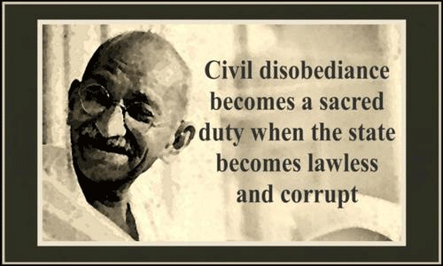 The women's march was awesome. It was a safe, organized place for those of us who don't usually protest to get our feet wet. But it wasn't civil disobedience. I follow Rogan's List and Robert Reich and a few others. They offer suggestions for letter writing, phone calling, boycotting certain businesses. These are all good actions to fight the inappropriate administration, but they're not civil disobedience. Civil disobedience requires sacrifice. It involves breaking laws (peacefully), rejecting norms, opting out of legally required actions. It's risky and powerful and something we middle-aged, suburban white women don't want to do. We like to express our opinions, but only as long as it's safe, legal, "right," and comfortable. We aren't living in a comfortable time. More human rights violations against more people than ever are at stake. However we sugar-coated previous human rights fights, however we kept our distance and pretended they weren't really that big a deal, we are being forced, now, to face up to some seriously inappropriate government actions that threaten to (dare I say it?) touch OUR lives! It's OK if you want to play it safe and only speak up about the actions that impact you or your loved ones. It's OK to defend your own reproductive choices and health with letters and phone calls. But don't pretend that you're protesting. And be aware, the people of color who pass you on the street KNOW that you're not fighting for them. They've learned not to expect it anymore. The prostitutes KNOW you aren't aware that they're trapped, malnourished, abused. The refugees crowding into Greece and Germany, waiting, hoping for a chance to settle somewhere peaceful where they can become part of a community again KNOW that you haven't really noticed that they're living in tents without water or electricity. For half a century, we've gotten away with ignoring human rights violations in our own neighborhoods, let alone across the world. We can't afford to get away with it anymore. Our whole civic structure is at stake, and the time for true civil disobedience is at hand. It's not enough to march with a permit and nice policemen wearing pink hats. We have to also march in front of offending businesses, protest at city hall when unfair legislation is proposed, block traffic, picket private property, take chances, be willing to be arrested. We have to stand with Standing Rock and be prepared for attacks from "authorities." We have to withhold our tax returns until the president reveals his conflicts of interest. Not all of us are in a position to exercise true civil disobedience, but it's important that we recognize what it is, what it requires, and how powerful it can be. Maybe all you can do is boycott companies that do business with Trump. Or donate to a charity that cares for marginalized people. Maybe you can quit shopping at a store that costs taxpayers $6 billion in government assistance for their employees every year, or the fast food chains that are nearly as big a drain on public funds. Maybe you can sit down with your financial advisor and pull out of funds that support slavery and child labor (especially African coffee and cocoa sources), and instead invest in businesses that are working to improve living conditions for the people that source their products. We can't all go to jail. We can't all get pepper-sprayed. But we can all refuse to participate in SOME WAY, to send the message that we DON'T support current political actions and we DO care about people less insulated than ourselves. If we aren't willing or able to do the work, we can at least take care of the people who ARE doing it, and be grateful to them.
2 Comments
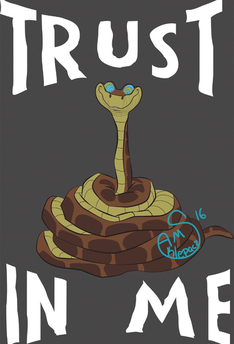 From deviantart.com From deviantart.com I had the deep privilege of meeting and working with Margaret Jacobsen, the organizer of the Portland march, who prefers gender-neutral pronouns. They work tirelessly for racial justice, in addition to gender equality, women's issues, and the vast, inclusive array of building awareness and speaking up for the marginalized among us. Margaret is my new hero, not afraid of confrontation, encouraging conversation, even heated, in the interest of learning from one another, and staying focused on the justice issues that really matter. In the conversations about white privilege and intersectional feminism, I'm reminded of a truth that struck me when I was a young teenager. Being that I'm white, blonde, blue-eyed, Christian, smiling, and an active volunteer, people have always just assumed that I'm trustworthy. Without ever having to prove myself, I get handed keys, entrusted with funds, called upon for security. Why me? I did nothing to earn that trust. I realized, at about 14 years old, that I could get away with anything! That was a troubling realization. I did get away with a few things I'll refrain from mentioning here <snicker>, but luckily for everyone who made assumptions about my character, I am, basically, trustworthy. But so are a lot of people who don't smile. Who aren't white. Who didn't grow up in the suburbs. Margaret is a great example of that, and there are hundreds across the country. Why have we not grown to trust facts, evidence, science, instead of making emotion-based judgments? Why are we still scared of black men at night? And potentially worse, why do we trust people who "feel" trustworthy? No wonder con artists are so successful! I work for food justice and waste management, that's the little thing I can do. But I also have to work for awareness. We all do. We have to question information, look into our hearts, know whether our decisions about people are based on fact or emotion. We can't elect presidents because they're entertaining or famous. We can't run from people who happen to speak a different language or look different or have fewer resources. Equally, we can't blindly trust the white guy, or the accountant, or me. Blindness got us into this mess. Only vision will get us out. 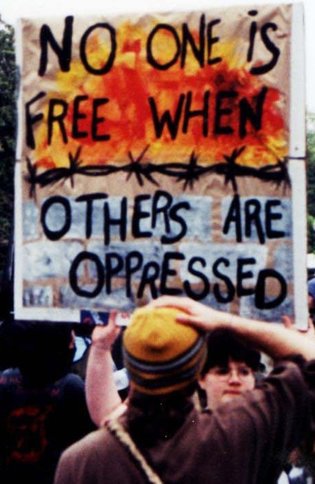 The new buzz phrase since the women's marches is intersectional feminism. To quote Inigo Montoya, "I do not think it means what you think it means." White feminists seem to want to claim the phrase as a way we can connect with feminists from minority groups, or intersect with them on the issue of feminism. That's not it at all, and it's important that we stop acting like we know what oppression feels like. We, white feminists in 21st century America, even under Tr*mp, are not oppressed. We have more freedom, luxury, opportunity, education, and choices than any society of women ever. EVER. Fighting for our rights to healthcare and equality is important, but it's NOTHING compared to fighting true oppression. We need to take a step back from our own arrogant perception of reality. Intersectional feminism isn't whatever we decide we want it to be. It's the definition of women (and men) who bear not only the burden of fighting for the rights of all women, but also fighting for the rights of their literal identity. Black, Middle Eastern, Muslim, Sikh, Jewish, Latina, lesbian, transgender, and all the other groups that our society treats unfairly and apathetically, these people are not only standing up for feminism. They are fighting for their lives intersectionally. A white women has NO IDEA what life is like for a transgender black Muslim. One oppression intersects with another and another and there is ALWAYS a fight for the right to exist. White feminists getting politically active is important. Let's do it. But let's recognize that it's a stroll down a country lane compared to the multi-high-speed-highway-junction of intersectionalism that so many people are trying to live with and survive under, let alone fight. Our grandmother feminists fought for the vote, and that was hard and important and necessary. Our mothers fought for the right to make our own decisions about what happens to our bodies, and for our reproductive rights. That was also hard and important and necessary. Now that a new generation has tasted inequality, now that all our hard-won rights are threatened, we have a much greater fight ahead. With the access to information, the ability to network and build virtual communities out of thin air, we need to learn to fight for the rights of ALL women, of ALL people -- especially those whose rights are threatened on more levels than we can ever really understand. Intersectional feminism is a burden that minority women have carried since the concept of women's rights was first expressed. We as a society have ignored it. Our new feminism, our enlightened, modern, informed feminism, requires that we humble ourselves, we recognize our privilege, and we walk alongside the women who have fought alone for so long. This generation's feminism will be all-inclusive and compassionate. It will lift up those who live with multiple intersections of oppression, for the sake of all of us. This is the only road to true freedom. 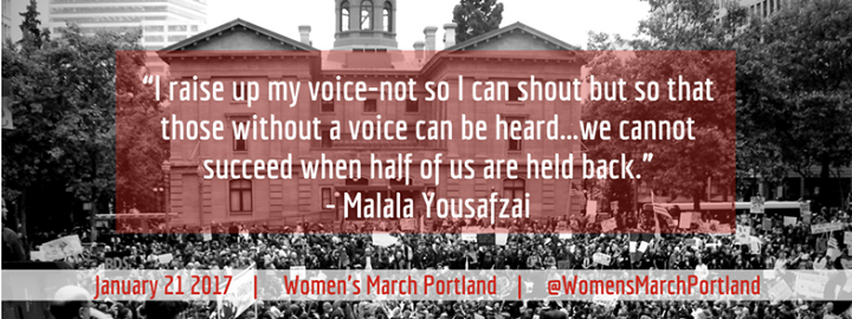 A long-time friend called me yesterday because he was trying to understand. "Is this about that video? Because that's not all that unusual." I agree that it's not unusual, and it's certainly not the worst I've ever seen or heard. Trump seemed to be marveling at how women fawned all over him just because he was a TV star, more than he was bragging about sexual conquest. A lot of women were offended, sure, and rightfully so -- nothing will change if we don't express outrage, and there are plenty of amazing, supportive men who would NEVER say anything like that, in a locker room or anywhere else. But that's not what marching was about. I had the privilege of joining the Portland planning team just a couple days after it formed -- a mere two weeks before the march. I had no idea who they were. I realize now that I also had very little knowledge of what the march was about. There was a lot of conversation beforehand, and some arguing and accusing and hurt feelings, all parts of learning and growing. It was powerful and educational and humbling. I am a white woman of privilege. It doesn't matter that I'm poor or disabled or old. I grew up in an outstanding school district. I had access to college. I was safe walking alone at night. The police were there to protect me. Here in Portland, my neighbors support me and my work. I could name a hundred people who would come to my defense if I were ever in serious trouble. A lot of white women of privilege marched because they are offended by Trump's sexist comments, his belittling treatment of women, his sexual-predator behavior, his complete lack of understanding of women's issues. But that isn't really what the march was about, and I hope these women take this opportunity to look deeper and grow. The march was about human rights for everyone, mostly those whom society passes over. It was about shining a light on the dark underside of our political system that still ignores the voices and needs of our black citizens, our Latina citizens, our mentally ill, our religiously diverse, and so many others. It was about taking this opportunity, when all women felt the outrage of our rights being threatened, and building it into a meaningful statement and conversation about ALL Americans deserving decent treatment, respect, a voice, and the so-elusive equal rights we think we've already talked to death. Trump is a disaster of a choice for president, and we'll have to watch him like a hawk. He over-simplifies every complex national and global situation and bulldozes his way through delicate relationships and alliances. He thinks his job is about winning rather than about serving. He isn't willing to learn and grow, or even read. He lives in his own fictional reality. But that's not our biggest problem. Our biggest problem is that radical, wealthy, religious ultra-fundamentalist conservatives think that they have the right to decide who matters and who doesn't. They believe they have the power to run America. They have the support of the president, and they can influence him dramatically. It's not about our new president's vulgarity. It's about his weakness. With all that money trying to take over our government, those of us without any have to work far harder than we ever have before to rebuild our democracy. Those of us who never really understood oppression need to learn from our diverse sisters and rise up, not only for ourselves and our rights as women, but for all of them, whose voices haven't been heard, ever. If we are to be a truly democratic, fair, healthy civilization, we have to stand up for the least of us. We have to recognize that demographic statistics reveal NOTHING about character and strength, intelligence and value. The women who organized Portland's march were powerful. They were also black, trans, Jewish, disabled, old, gay, abused, underpaid, indigenous, and mostly unseen. Until now. We must see them and learn from them. We must value ALL our people. This nation was built on diversity, and diversity is under attack. It's time to stand up, speak out, and march. 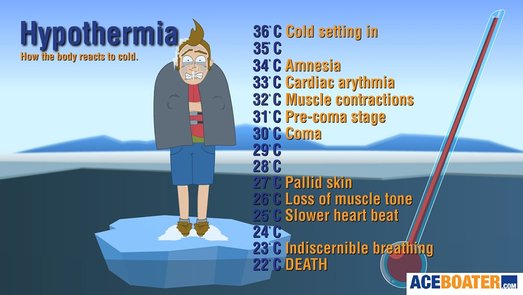 I can't express this better, so I'm sharing an article from today's Oregonian. A man who died of exposure in the woods near Southwest Barbur Boulevard has been identified as Zachary A. Young, a 29-year-old from McMinnville who was likely living there before he died of hypothermia. Young's father, Vance Young, said Thursday his son dealt with mental illness that fueled extreme paranoia for most of his life. He hadn't seen or heard from his son for about a year and a half before he was notified of the death. Zachary Young's body was discovered Tuesday on a steep hillside, the fourth person to die of exposure in Portland this year. His father said Zachary Young had fallen off his skateboard at 15 when he wasn't wearing a helmet. He underwent brain surgery. He was never the same, his father said. "For me this was a heartbreak," Vance Young said. "Zach was a great kid. He had all the other aspirations that a kid would have -- just a really lot of promise." For years, Young was angry at the world. He was fiercely intelligent and could have in-depth conversations about all sorts of topics, his father said, but he couldn't quite put words to what he was feeling. His paranoia and fear alienated him from other students at McMinnville High School, and he spent time in a special home for boys. Young's parents were divorced, and his father said that Young's mother spent hundreds of hours working with him, trying to get him help with his mental health. But once Young turned 18, they couldn't force him to get assessed to get the social services he qualified for. Young refused, saying he didn't think it was right to apply for free programs or get government help, his father said. But he couldn't hold down a job to provide for himself. Eventually, he stopped trusting his parents and chose to live on the street. Vance Young said he and his ex-wife deposited money into a bank account that Zach could access. They kept tabs on him that way, by tracking when money was withdrawn. They also paid for a storage unit in Tigard for his belongings. He lived in it off and on for years. Occasionally, they changed the locks to force him to contact them. That backfired when he got so mad more than a year ago that he stopped visiting and withdrawing money. Since then, Vance Young said his son's life was a mystery to them. Now, he said he wishes he had looked into having his son committed for mental treatment. He didn't try before because Zach was an adult and he didn't seem like someone who couldn't take care of himself. Young said it seemed like an unreasonable step and would have hurt his relationship with his son, but wonders if it would have kept him alive. "I wish we had done something beyond what we did. You can sit there and say I've done enough," Young said. "Yet, he is an adult and once he hits that point, he has to ask for them." What you can do If you need help: Call 211. There might be a wait, but stay on the line. Someone will answer. They can direct you to the nearest warming shelter and arrange for a car to come pick you up. No one will be turned away. There's a list of warming centers at 211info.org. Use public buildings, such as libraries and community centers, to get warm during that day. If you want to help: Donate new or lightly used clean clothing and supplies -- hats, coats, gloves, socks, men's and women's underwear, tents, sleeping bags, blankets and tarps. Go to 211info.org/donations to find out where you can drop off items or donate money. Call 911: If you see someone outside who appears to be in danger or is in the midst of a medical crisis. Call 211 or the Portland police non-emergency line: If you're concerned about someone who might need help. The non-emergency line is 503-823-3333. "It was a dark and stormy night" may just be a cliche to you, but to me it can mean life or death, depending on how cold it gets. Staying dry doesn't matter if it isn't too cold, and sometimes it isn't worth the enormous effort it takes to shelter myself. When it snows, like today, shelter is priority one, even before food. It takes a whole lot more than those old blankets people keep handing out, thinking they're helping. Well, they are, a little. But if you live out in the elements, it takes at least four layers to stop the cold of the concrete from seeping through, and at least one better be waterproof. Nobody out here really has enough hand-offs, sheets of cardboard, and plastic trash bags to ever be really warm and dry.
I found a covered doorway last night that kept a lot of the wet off me, but there was enough wind to make it less than perfect. I don't have a shopping cart like some of the people who have been out here a long time. I have a little suitcase on wheels with a broken zipper that I found in a dumpster. It has some cartoon character I've never heard of on it. I'm still learning what I can keep and what just weighs me down, and the most important thing I'm learning is that staying dry isn't optional, it's absolutely critical. I went to college, just like most of the people who pass me on the street. I didn't finish, but I knew enough to get a pretty decent job. I'm glad I didn't have kids, because my husband would have hurt them, too. It took years for me to run, to give up the job, to drive to a different city in a different state, to build a whole new identity so he can't find me. It was tough to choose to run, to give up any security I had. It felt like jumping off a cliff. But when somebody's chasing you with a baseball bat, you jump. I lived in my car for over two years before it was stolen, along with everything I owned. At least that happened in summer, when not having a jacket didn't mean certain death. But man, that first winter outside taught me things I never dreamed I'd need to know. Now in my third winter outside, I'm an old pro, and I try hard to lend a hand to newbies, especially the younger women like me. I know how vulnerable they feel, and I know at what price those survival lessons come. A couple generations ago, people could live without property. There was open land. There were fruitful trees and it was OK to catch wild animals to eat, and to build a fire, and to pitch a tent. A hundred years ago, people didn't have to have jobs to earn a living -- they could live off the land, provide for themselves through ingenuity, cooperate with neighbors and share resources. Nobody thought you were crazy if you carried a pack and traveled, always looking for a peaceful place to rest. And if a stranger knocked on your door and asked for food, you gave it to them, because nobody deserves to be hungry. Sometimes you asked for help chopping wood. Sometimes you let them sleep out back under the eaves. Maybe it's just because there are so many more people now. Maybe access to so many "things" has convinced everybody that we all need all of them. He who dies with the most toys ... still dies. We don't trust anybody anymore. Everything is competition. People don't even know their next-door neighbors. Let me tell you, when your survival is on the line, you KNOW your neighbors. You'd better be darn sure you know who to trust and who to be wary of. You share, no matter how little you have, and you know others will share with you, because we don't look like much, but we're people too, and each of us matters. You'll usually find me crouched up against a building during the day. It's partly how I conserve my body heat, it's partly to be unobtrusive, and it's partly because you all have convinced me that I'm just in your way. I might suffer from a little mental illness -- post-traumatic stress or something -- who wouldn't, living this way? But I don't do drugs, and I never hurt anybody. My wish, every day, is that when you see me crouched there, you'll give me the benefit of the doubt and behave as if I were the same as you. |
AuthorSusie Snortum is passionate about improving society's compassion for meeting basic human needs -- food, shelter, clean water, and dignity. Archives
September 2020
Categories |
We appreciate your support!
Hours
|
Telephone
|
Email
|
ADDRESS: 17850 NW Park View Blvd, Portland, OR 97229 United States
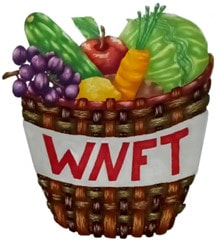
 RSS Feed
RSS Feed